Although he became a noted producer during the height of punk, it was with THE HUMAN LEAGUE’s ‘Dare’ that Martin Rushent’s reputation as an electronic music pioneer was forged.
Rushent had cut his teeth as an engineer for acts as varied as Shirley Bassey and T-REX, working under the wing of their respective producers Johnny Harris and Tony Visconti.
His first major production was for CURVED AIR on their ‘Air Cut’ album.
Engineered by Paul Hardiman who was later to produce THE THE and LLOYD COLE & THE COMMOTIONS, it also featured Jim Russell on drums who became later became one of Rushent’s engineers and joined THE HUMAN LEAGUE for their ‘Crash’ tour.
He then secured a lucrative role working for United Artists, the company famously founded by Charlie Chaplin, Douglas Fairbanks Junior, Mary Pickford and DW Griffith, as an in-house producer with A&R responsibilities.
It was in this position that he found major success working with THE STRANGLERS on ‘(Get A) Grip (On Yourself)’, ‘Peaches’ and ‘No More Heroes’ as well as BUZZCOCKS on ‘Evere Fallen In Love’ and ‘Promises’. Meanwhile his freelance clause allowed him to also produce bands like GENERATION X, 999 and THE REZILLOS whose guitarist Jo Callis was later to join THE HUMAN LEAGUE.
It was in 1978 at the height of his punk success that Radar Records, an offshoot of Warners who had Elvis Costello and Nick Lowe on their roster, offered Rushent an opportunity to start his own label and production company. Radar had been founded by the team that had hired Rushent for United Artists and the offer included funding to build what was to become his Genetic Sound Studios complex at his home in Reading.
With his new office based above The Blitz Club and a desire to move away from guitar bands, Rushent became fascinated by the New Romantic movement and its electronic soundtrack provided by their resident DJ Rusty Egan. Egan had started a project with Midge Ure named VISAGE fronted by the now sadly departed Steve Strange. Their demos had been offered to EMI but were turned down…
“Martin Rushent turned punk into pop with THE STRANGLERS and BUZZCOCKS and was the hottest punk producer in 1977-78. He had no idea about synths, he was a rock producer but knew ULTRAVOX, MAGAZINE and RICH KIDS were disbanded.” Rusty Egan told ELECTRICITYCLUB.CO.UK, “But his musical hunch was ‘they must come up with something’”.
Sensing that something was in the air, Rushent invited VISAGE to use his studio to see what they came up with. These sessions, which also featured ULTRAVOX’s Billy Currie plus MAGAZINE’s Dave Formula, the late John McGeoch and Barry Adamson, intrigued Rushent. “We came with our equipment and no drum kit” recalled Egan about that visit to Genetic Sound Studios which was still being built.
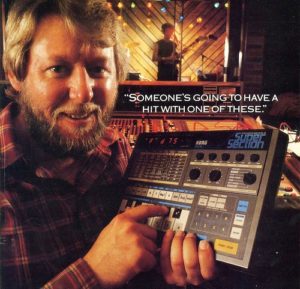 “I had the CR78 and the Simmons SDS3 prototype which Richard Burgess gave us; Midge had a Yamaha CS50, Billy had an RMI Electra Piano, Elka Rhapsody 610 and the ARP Odyssey while Dave brought his Yamaha CP30, ARP Odyssey and Yamaha string machine. We ran sequenced drums and layered, we had SMPTE timecode as MIDI did not come in for years, so we triggered and I hit drum pads and we created the sounds… Martin had never seen this type of recording”.
“I had the CR78 and the Simmons SDS3 prototype which Richard Burgess gave us; Midge had a Yamaha CS50, Billy had an RMI Electra Piano, Elka Rhapsody 610 and the ARP Odyssey while Dave brought his Yamaha CP30, ARP Odyssey and Yamaha string machine. We ran sequenced drums and layered, we had SMPTE timecode as MIDI did not come in for years, so we triggered and I hit drum pads and we created the sounds… Martin had never seen this type of recording”.
Despite the promising material coming from VISAGE, Warners pulled the plug on Radar and immediate plans for Genetic Records became stillborn. In hindsight, this move was extremely short sighted on Warners part as it was rumoured Rushent had been in discussions with JOY DIVISION, ULTRAVOX and SPANDAU BALLET.
Despite this set back, this experience helped Rushent realise that music production moving towards being more computer-driven, so he bought a Roland MC8 Micro-composer along with a Roland System 700 and Jupiter 4.
A strong advocate of clarity in instrument voicing and as a former drummer, how drum sounds were achieved, the availability of the Linn LM1 Drum Computer in 1981 was the final piece in the jigsaw and the set-up helped Rushent realise his vision. The rest as they say, is history and THE HUMAN LEAGUE scored a No1 with ‘Don’t You Want Me?’ on both sides of the Atlantic…
Rushent won the 1982 Brit Award for best producer and went on to produce THE GO-GO’S third album ‘Talk Show’ released in 1984. However, while recording the follow-up to ‘Dare’
, a breakdown in his personal life, coupled to deteriorating relations with THE HUMAN LEAGUE led to Rushent leaving the sessions and walking out of his own studio! The eventual ‘Hysteria’ album was lukewarm, audibly missing Rushent’s touch.
Following his divorce, Rushent was forced to sell Genetic Sound Studios to avoid bankruptcy. Despite reducing his workload to more occasional studio recordings with ASSOCIATES, HARD CORPS, THEN JERICO and TWO PEOPLE, Rushent was suffering from depression; realising his heart was no longer in music, he effectively retired from the industry.
Taking time out to raise his family as a single parent, he eventually made a steady return to full album productions with Hazel O’Connor in 2005 and THE PIPETTES in 2010. Buoyed by the huge developments in computer technology, he even presented his own DISCO UNLIMITED project with a track called ‘Itchy Hips’ inspired by his daughter Amy, as well as working with his son James’ band DOES IT OFFEND YOU, YEAH? But just as momentum was returning to his music career, Rushent sadly passed away in June 2011, aged 62.
Remembering working with Martin Rushent, Clive Pierce of HARD CORPS said: “Personally I felt overwhelmed when in the studio with him as it did feel at times that your precious baby was being bounced around in a manner you would never dream of doing yourself. His deft production work magnified what we were attempting to do ourselves and that’s exactly what great producers do”.
THE PIPETTES’ Ani Saunders who now makes music as ANI GLASS and recently tweeted a photo of project notes from recording with Rushent as she prepared to record her first solo album added: “One of the greatest lessons I learnt from Martin was to only spend your time working on music you believe in and not to be afraid to change / amend / cut parts or songs if they’re not good enough. Of course the production and engineering skills I gained working with him were invaluable but I also learnt about how to create the right atmosphere for and during recording, something which I think is often overlooked. When I’m writing pop songs I always ask myself ‘what would Martin do?’ – it helps to keep me in check”.
Focussing primarily on his work with synthesizers and technology, here is a look back at the post-punk career of Martin Rushent. With a limit of one track per album project and presented in chronological order, here is a Beginner’s Guide to the late, great man…
THE STRANGLERS Nice N Sleazy (1978)
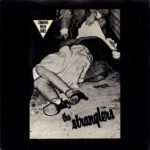 Making his fortune producing the key tracks of THE STRANGLERS, the mutant punk reggae of ‘Nice N Sleazy’ saw a diversion into synthesizers with Dave Greenfield’s spacey blast of swirling Minimoog during the instrumental break. At their Battersea Park in September 1978, the band typically courted controversy when they were accompanied by strippers for the song’s visual embellishment!
Making his fortune producing the key tracks of THE STRANGLERS, the mutant punk reggae of ‘Nice N Sleazy’ saw a diversion into synthesizers with Dave Greenfield’s spacey blast of swirling Minimoog during the instrumental break. At their Battersea Park in September 1978, the band typically courted controversy when they were accompanied by strippers for the song’s visual embellishment!
Available on THE STRANGLERS album ‘The Very Best Of’ via EMI Records
JOY DIVISION Ice Age (1979 – Released 1997)
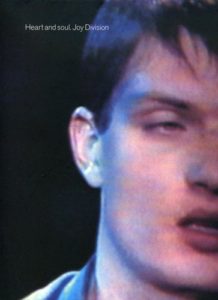 Recorded in March 1979, JOY DIVISION spent a day at Eden Studios in London with Martin Rushent, making a 5 track demo with the view to signing to his Genetic Records label. But afterwards, the band headed to Strawberry Studios in Manchester to record their debut album ’Unknown Pleasures’ with Martin Hannett for Factory Records. However, Rushent always reckoned his version of ‘Ice Age’ was better than the speedier version which ended up on the posthumous ‘Still’ collection in 1981.
Recorded in March 1979, JOY DIVISION spent a day at Eden Studios in London with Martin Rushent, making a 5 track demo with the view to signing to his Genetic Records label. But afterwards, the band headed to Strawberry Studios in Manchester to record their debut album ’Unknown Pleasures’ with Martin Hannett for Factory Records. However, Rushent always reckoned his version of ‘Ice Age’ was better than the speedier version which ended up on the posthumous ‘Still’ collection in 1981.
Available on the JOY DIVISION boxed set ‘Heart & Soul’ via Rhino Records
http://joydivisionofficial.com
VISAGE Tar (1979)
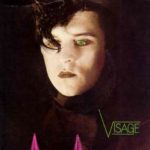 At Genetic Sound Studios, VISAGE started recording an album. Rusty Egan recalled: “we agreed to use the studio for a weekend with Martin engineering”; the first track from those sessions was ‘Tar’, a cautionary tale about the dangers of smoking. After numerous contractual issues, it was finally released as a single on Genetic Records but within days, Warners closed down his funding source at Radar Records.
At Genetic Sound Studios, VISAGE started recording an album. Rusty Egan recalled: “we agreed to use the studio for a weekend with Martin engineering”; the first track from those sessions was ‘Tar’, a cautionary tale about the dangers of smoking. After numerous contractual issues, it was finally released as a single on Genetic Records but within days, Warners closed down his funding source at Radar Records.
Available on VISAGE album ‘Visage’ via Polydor Records
PETE SHELLEY Homosapien (1981)
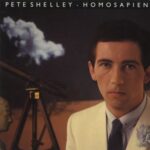 ‘Homosapien’ came about after sessions were aborted for BUZZCOCKS fourth album. Rushent and frontman Pete Shelley worked on new material using the Roland MC8 Micro-composer and System 700. Now seen as Shelley’s coming out song, a cacophony of synths and 12 string guitar combined for a wonderful futuristic snarl. However, the lyric “Homo Superior in my interior” got it a BBC Radio1 ban.
‘Homosapien’ came about after sessions were aborted for BUZZCOCKS fourth album. Rushent and frontman Pete Shelley worked on new material using the Roland MC8 Micro-composer and System 700. Now seen as Shelley’s coming out song, a cacophony of synths and 12 string guitar combined for a wonderful futuristic snarl. However, the lyric “Homo Superior in my interior” got it a BBC Radio1 ban.
Available on the PETE SHELLEY album ‘Homosapien’ via Active Distribution Ltd
http://www.buzzcocks.com/_peteshelley/peteshelley.html
THE HUMAN LEAGUE The Sound Of The Crowd (1981)
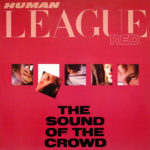 When presented with the demo of ‘The Sound Of The Crowd’, Rushent’s response was “Well, that’s going in the bin”. Phil Oakey objected but the producer snarled back: “You came to me, so I assume that’s because you want hits?”… triggering bursts of System 700 white noise from the Micro-composer, obscure lyrics and a screaming chant gave THE HUMAN LEAGUE their breakthrough hit.
When presented with the demo of ‘The Sound Of The Crowd’, Rushent’s response was “Well, that’s going in the bin”. Phil Oakey objected but the producer snarled back: “You came to me, so I assume that’s because you want hits?”… triggering bursts of System 700 white noise from the Micro-composer, obscure lyrics and a screaming chant gave THE HUMAN LEAGUE their breakthrough hit.
Available on THE HUMAN LEAGUE album ‘Greatest Hits’ via Virgin Records
http://www.thehumanleague.co.uk
ALTERED IMAGES Happy Birthday (1981)
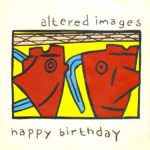 While Steve Severin produced the majority of the ‘Happy Birthday’ album, the job of turning the title track into the Glaswegian quintet’s breakthrough hit fell to Rushent. Tight ‘n’ bright thanks to his modern production techniques and Glare Grogan’s helium fuelled cutesy vocals and nursery rhyme lyrics, ALTERED IMAGES reached No2.
While Steve Severin produced the majority of the ‘Happy Birthday’ album, the job of turning the title track into the Glaswegian quintet’s breakthrough hit fell to Rushent. Tight ‘n’ bright thanks to his modern production techniques and Glare Grogan’s helium fuelled cutesy vocals and nursery rhyme lyrics, ALTERED IMAGES reached No2.
Available on ALTERED IMAGES album ‘Happy Birthday: The Best Of’ via Music Club
https://www.facebook.com/ClareGrogansAlteredImages/
ALTERED IMAGES I Could Be Happy (1981)
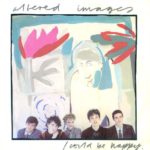 Combining the precision of programmed technology with live instrumentation, ‘I Could Be Happy’ was one of Rushent’s best productions. Despite being shrouded in melancholy, it was catchy and danceable enough to be a UK Top 10 hit. Rushent produced the parent album ‘Pinky Blue’ but it was given a lukewarm reception, ultimately causing the original line-up of ALTERED IMAGES to implode.
Combining the precision of programmed technology with live instrumentation, ‘I Could Be Happy’ was one of Rushent’s best productions. Despite being shrouded in melancholy, it was catchy and danceable enough to be a UK Top 10 hit. Rushent produced the parent album ‘Pinky Blue’ but it was given a lukewarm reception, ultimately causing the original line-up of ALTERED IMAGES to implode.
Available on ALTERED IMAGES boxed set ‘The Epic Years’ via Cherry Red
https://twitter.com/claregrogan2
LEISURE PROCESS Love Cascade (1982)
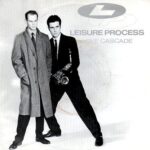 Featuring Ross Middleton and soon to be in-demand session saxophonist Gary Barnacle with production by Rushent, ‘Love Cascade’ was the missing link between Pete Shelley and THE HUMAN LEAGUE. The vocals were virtually unintelligible as the clattering Linn Drum, pulsing synths, squawky guitar and sax merged together for a cool dancefloor friendly tune full of the decadent spirit of the times.
Featuring Ross Middleton and soon to be in-demand session saxophonist Gary Barnacle with production by Rushent, ‘Love Cascade’ was the missing link between Pete Shelley and THE HUMAN LEAGUE. The vocals were virtually unintelligible as the clattering Linn Drum, pulsing synths, squawky guitar and sax merged together for a cool dancefloor friendly tune full of the decadent spirit of the times.
12 inch version available on the album ‘Retro: Active 5’ (V/A) via Hi-Bias Records Canada
http://www.discogs.com/artist/Leisure+Process
THE LEAGUE UNLIMITED ORCHESTRA Do Or Die (1982)
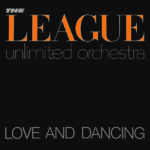 “The most creative experience I’ve ever had in my life” was how Rushent described the tracks from ‘Dare’ specially remixed and re-edited by him. Pre-sampling, the material was remixed from the mixing board using a multitude of effects with vocal stutters created by cutting up and splicing portions of tape with the aid of his custom-made ruler. The percussive dub laden barrage of ‘Do Or Die’ was one of the highlights.
“The most creative experience I’ve ever had in my life” was how Rushent described the tracks from ‘Dare’ specially remixed and re-edited by him. Pre-sampling, the material was remixed from the mixing board using a multitude of effects with vocal stutters created by cutting up and splicing portions of tape with the aid of his custom-made ruler. The percussive dub laden barrage of ‘Do Or Die’ was one of the highlights.
Available on THE LEAGUE UNLIMITED ORCHESTRA album ‘Love & Dancing’ via Virgin Records
http://www.muzines.co.uk/articles/human-league-in-the-studio/4246
THE HUMAN LEAGUE Fascination (1983)
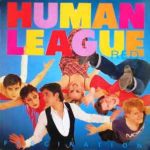 Tensions were running high with creative differences during the recording sessions for THE HUMAN LEAGUE’s follow-up to ‘Dare’, with Rushent losing enthusiasm for the album project due to conflicts in the studio with Phil Oakey and in particular, Susanne Sulley. The weirdly catchy ‘Fascination’ was the last track to be recorded with Rushent, but he departed before it was mixed…
Tensions were running high with creative differences during the recording sessions for THE HUMAN LEAGUE’s follow-up to ‘Dare’, with Rushent losing enthusiasm for the album project due to conflicts in the studio with Phil Oakey and in particular, Susanne Sulley. The weirdly catchy ‘Fascination’ was the last track to be recorded with Rushent, but he departed before it was mixed…
Extended version available on THE HUMAN LEAGUE album ‘A Very British Synthesizer Group’ via Virgin Records
https://www.facebook.com/thehumanleague/
PETE SHELLEY Telephone Operator (1983)
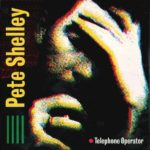 With Shelley and Rushent developing on ‘Homosapien’ with a more fierce sound, ‘Telephone Operator’ could be seen as an extension lyrically to the themes of its predecessor. The original parent album ‘XL-1’ had a novel bonus track in a computer program for the Sinclair ZX Spectrum which printed lyrics in time with the music and displayed graphics.
With Shelley and Rushent developing on ‘Homosapien’ with a more fierce sound, ‘Telephone Operator’ could be seen as an extension lyrically to the themes of its predecessor. The original parent album ‘XL-1’ had a novel bonus track in a computer program for the Sinclair ZX Spectrum which printed lyrics in time with the music and displayed graphics.
Available on PETE SHELLEY album ‘XL-1’ by Active Distribution Ltd
https://www.discogs.com/artist/28754-Pete-Shelley
HAZEL O’CONNOR Don’t Touch Me (1984)
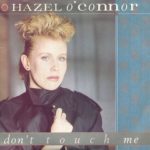 When endorsing Korg’s PSS-50 Programmable Super Section, Rushent was enthusing about a record which “apart from voice” was “all written and performed on one synth” – that album was HAzel O’Connor’s ‘Smile’. From it, the moody single ‘Don’t Touch Me’ was very art school Weimar Cabaret with some very passionate vocals from O’Connor, constructed around a Synclavier with its distinct period bass and brass sounds.
When endorsing Korg’s PSS-50 Programmable Super Section, Rushent was enthusing about a record which “apart from voice” was “all written and performed on one synth” – that album was HAzel O’Connor’s ‘Smile’. From it, the moody single ‘Don’t Touch Me’ was very art school Weimar Cabaret with some very passionate vocals from O’Connor, constructed around a Synclavier with its distinct period bass and brass sounds.
Available on HAZEL O’CONNOR album ‘Smile’ via Cherry Red
ASSOCIATES Breakfast (1985)
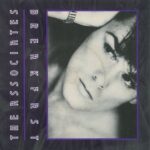 Rushent worked with Billy Mackenzie on five tracks for ‘Perhaps’, the much anticipated recorded return of ASSOCIATES. ‘Waiting For The Love Boat’ was one, but the recording which stood out was the epic string laden drama of ’Breakfast’. It is possibly Mackenzie’s greatest single moment, the melancholic piano motif setting the scene for an entire film noir in five minutes with mournful tension.
Rushent worked with Billy Mackenzie on five tracks for ‘Perhaps’, the much anticipated recorded return of ASSOCIATES. ‘Waiting For The Love Boat’ was one, but the recording which stood out was the epic string laden drama of ’Breakfast’. It is possibly Mackenzie’s greatest single moment, the melancholic piano motif setting the scene for an entire film noir in five minutes with mournful tension.
Available on ASSOCIATES album ‘Singles’ via WEA
HARD CORPS Je Suis Passée (1985)
 Clive Pierce said: “HARD CORPS, having traditionally self-produced tracks at our resident studio in Brixton relished the prospect of working with Martin on ‘Je Suis Passée’ having been admirers of his work on ‘Love & Dancing’. It was difficult but never the less a total education. That’s the trouble being so close to something it’s difficult to let go. In retrospect I now listen to ’Je Suis Passée’ in awe of what he achieved. The baby was fine”.
Clive Pierce said: “HARD CORPS, having traditionally self-produced tracks at our resident studio in Brixton relished the prospect of working with Martin on ‘Je Suis Passée’ having been admirers of his work on ‘Love & Dancing’. It was difficult but never the less a total education. That’s the trouble being so close to something it’s difficult to let go. In retrospect I now listen to ’Je Suis Passée’ in awe of what he achieved. The baby was fine”.
Originally released as a single by Polydor Records, version available on the album ‘Clean Tables Have To Be Burnt’ via Minimal Wave Records
https://www.facebook.com/hard-CORPS-217860235015406/
THEN JERICO The Big Sweep (1985)
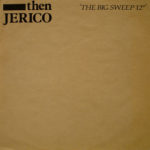 Pop rockers THEN JERICO were fronted by the handsome if volatile Mark Shaw; their debut single ‘The Big Sweep’ was recorded with Rushent and some help from his new Synclavier. However, due to the track’s anti-tabloid lyrical subject matter, the band’s label London Records initially declined to release the track. So it was self-released as a 1000 limited edition…
Pop rockers THEN JERICO were fronted by the handsome if volatile Mark Shaw; their debut single ‘The Big Sweep’ was recorded with Rushent and some help from his new Synclavier. However, due to the track’s anti-tabloid lyrical subject matter, the band’s label London Records initially declined to release the track. So it was self-released as a 1000 limited edition…
Available on the THEN JERICO album ‘The Best Of’ via London Records
THE HUMAN LEAGUE Heart Like A Wheel (1990)
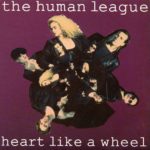 Jo Callis told ELECTRICITYCLUB.CO.UK: “With ‘Heart Like A Wheel’, when The League came to thinking about the follow up to ‘Crash’ (which would become ‘Romantic?’), I thought there might be a good opportunity to try and get ‘the old team’ back together again, which I did manage to achieve for a couple of tunes at least”. With Rushent at the helm again, the result was a tune that recalled the classic pop era of THE HUMAN LEAGUE.
Jo Callis told ELECTRICITYCLUB.CO.UK: “With ‘Heart Like A Wheel’, when The League came to thinking about the follow up to ‘Crash’ (which would become ‘Romantic?’), I thought there might be a good opportunity to try and get ‘the old team’ back together again, which I did manage to achieve for a couple of tunes at least”. With Rushent at the helm again, the result was a tune that recalled the classic pop era of THE HUMAN LEAGUE.
Available on THE HUMAN LEAGUE album ‘The Very Best Of’ via Virgin Records
GRAFTON PRIMARY Relativity – Martin Rushent remix (2008)
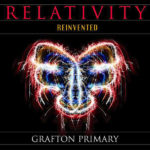 Australian electro-noir duo GRAFTON PRIMARY balanced in the divide between art and science on their debut single ‘Relativity’. Benjamin and Joshua Garden utilised sharp synthpop hooks and solid basslines in a classic Synth Britannia vein not dissimilar to THE HUMAN LEAGUE, which naturally made the Garden brothers perfect for a remix by Martin Rushent.
Australian electro-noir duo GRAFTON PRIMARY balanced in the divide between art and science on their debut single ‘Relativity’. Benjamin and Joshua Garden utilised sharp synthpop hooks and solid basslines in a classic Synth Britannia vein not dissimilar to THE HUMAN LEAGUE, which naturally made the Garden brothers perfect for a remix by Martin Rushent.
Available on GRAFTON PRIMARY single ‘Relativity’ via Resolution Music
https://www.facebook.com/graftonprimarymusic/
THE PIPETTES Our Love Was Saved By Spacemen (2010)
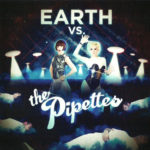 From Rushent’s final album production, ‘Our Love Was Saved By Spacemen’ was a celestial Latin flavoured pop tune by the MkII variant of THE PIPETTES, fronted by sisters Gwenno and Ani Saunders. The partnership was to prove inspirational with Gwenno’s next solo long player ‘Y Dydd Olaf’ being one of the best albums of 2014.
From Rushent’s final album production, ‘Our Love Was Saved By Spacemen’ was a celestial Latin flavoured pop tune by the MkII variant of THE PIPETTES, fronted by sisters Gwenno and Ani Saunders. The partnership was to prove inspirational with Gwenno’s next solo long player ‘Y Dydd Olaf’ being one of the best albums of 2014.
Available on THE PIPETTES album ‘Earth Vs The Pipettes’ via Fortuna Pop
https://www.facebook.com/thepipettes/
In memory of Martin Rushent 1948-2011
ELECTRICITYCLUB.CO.UK gives its warmest thanks to Rusty Egan, Clive Pierce, Ani Saunders and Jo Callis
A Facebook tribute group to Martin Rushent run by his son Tim can be viewed at
https://www.facebook.com/groups/216490505038835/
Text by Chi Ming Lai
12th February 2018

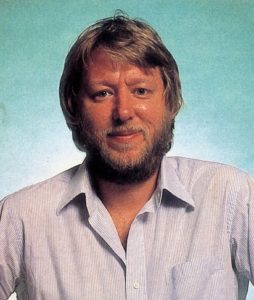
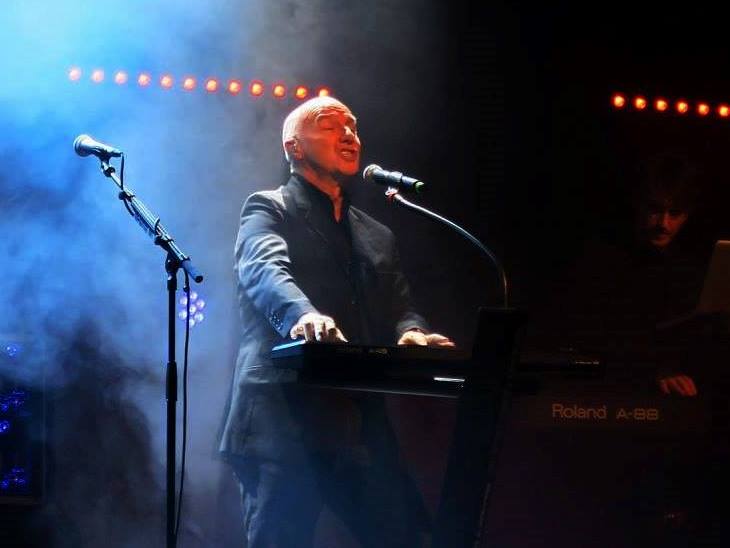
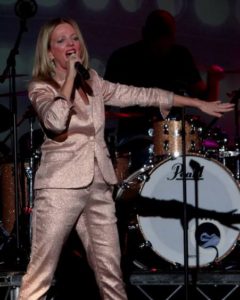
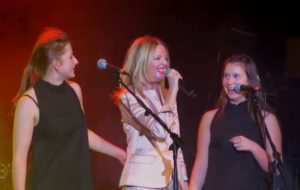
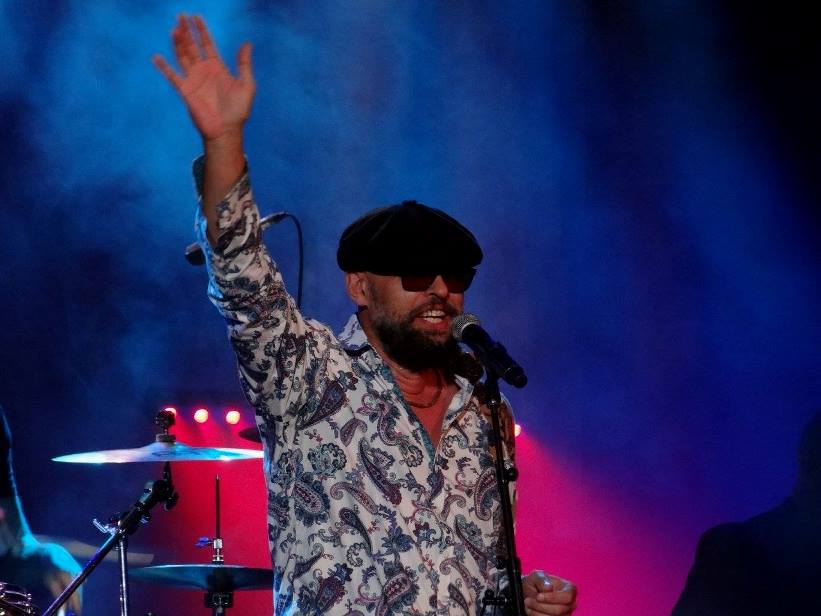
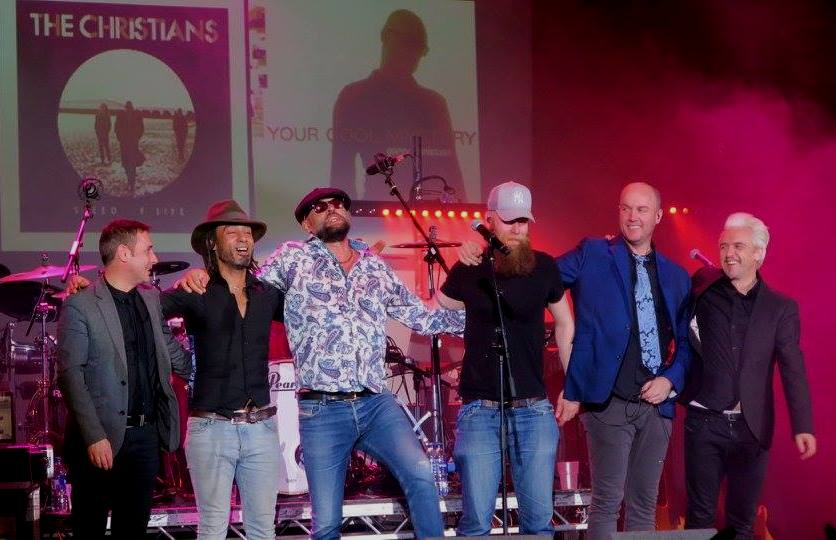
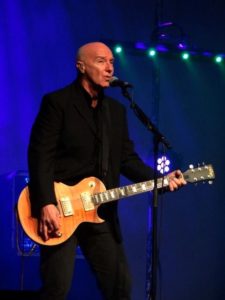
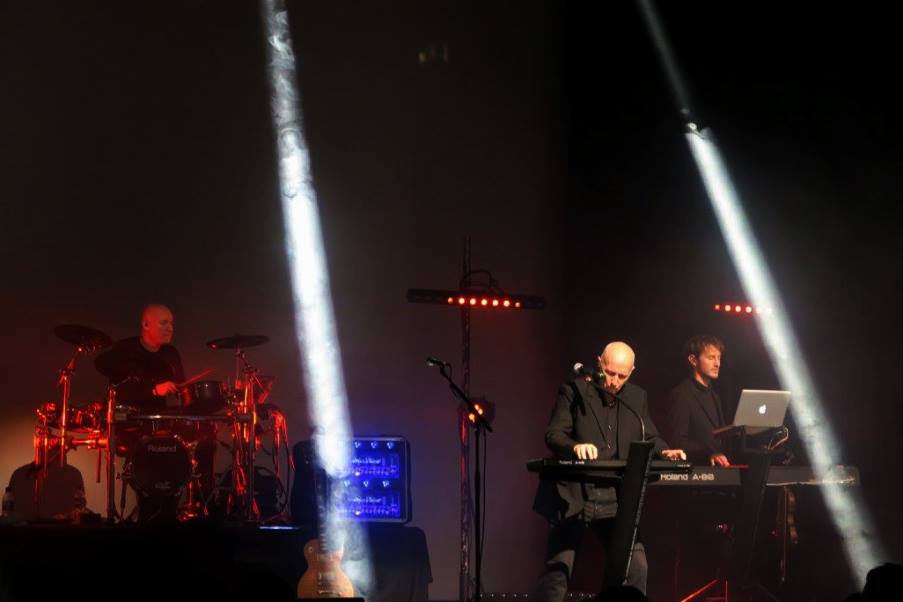
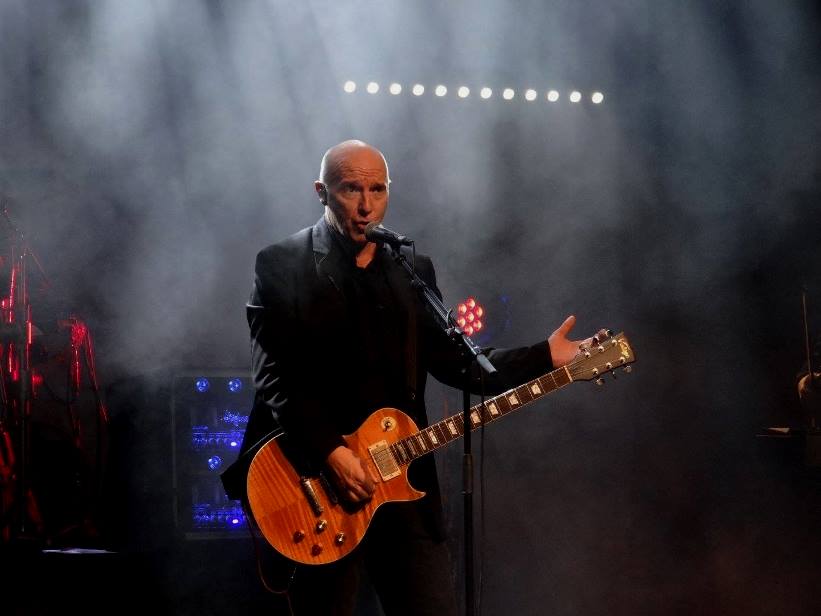
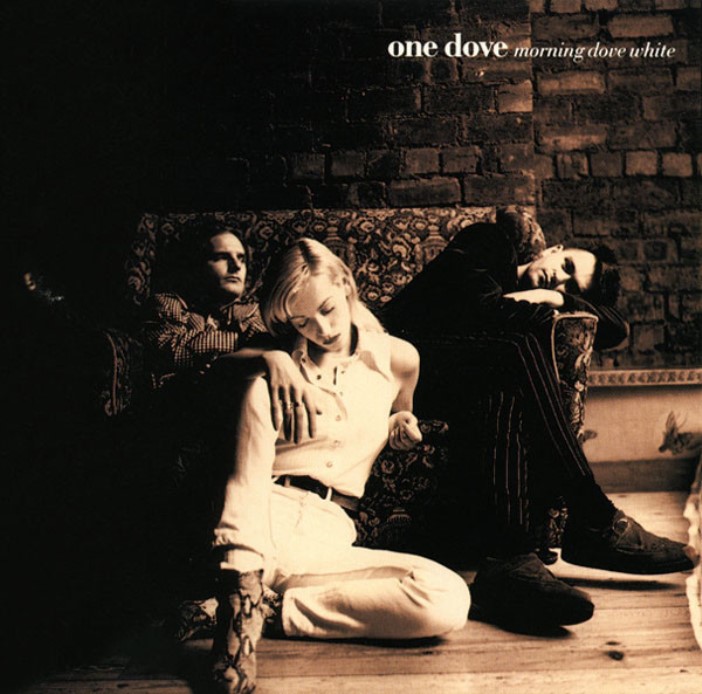
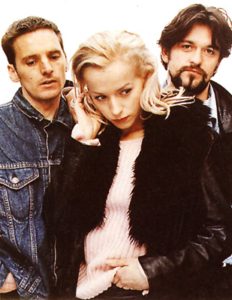
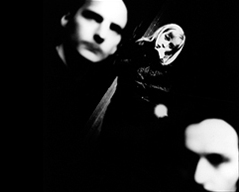
Follow Us!